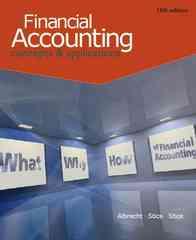Question
Miller Company acquired an 80 percent interest in Taylor Company on January 1, 2011. Miller paid $664,000 in cash to the owners of Taylor to
Miller Company acquired an 80 percent interest in Taylor Company on January 1, 2011. Miller paid $664,000 in cash to the owners of Taylor to acquire these shares. In addition, the remaining 20 percent of Taylor shares continued to trade at a total value of $166,000 both before and after Miller?s acquisition. On January 1, 2011, Taylor reported a book value of $600,000 (Common Stock=$300,000; Additional Paid-In Capital=$90,000; Retained Earnings=$210,000). Several of Taylor?s buildings that have a remaining life of 20 years were undervalued by a total of $80,000. During the next three years, Taylor reported the following figures: Year Net Income Dividends Paid 2011 $70,000 $10,000 2012 90,000 15,000 2013 100,000 20,000 Determine the appropriate answers for each of the following questions: A. What amount of excess depreciation expense should be recognized in the consolidated financial statements for the initial years following this acquisition? B. If a consolidated balance sheet is prepared as of January 1, 2011, what amount of goodwill should be recognized? C. If a consolidation worksheet is prepared as of January 1, 2011, what Entry S and Entry A should be included. D. On the separate financial records of the parent company, what amount of investment income would be reported for 2011 under each of the following methods? 1. Equity method 2. Partial equity method 3. Initial value method E. On the parent company?s separate financial records, what would be the December 31, 2013, balance for the Investment in Taylor Company account under each of the following accounting methods? 1. Equity method 2. Partial equity method 3. Initial value method F. As of December 31, 2012, Miller?s Buildings account on its separate records has a balance of $800,000 and Taylor has a similar account with a $300,000 balance. What is the consolidated balance for the Buildings account? G. What is the balance of consolidated goodwill as of December 31, 2013? H. Assume that the parent company has been applying the equity method to this investment. On December 31, 2013, the separate financial statements for the two companies present the following information: Miller Company Taylor Company Common Stock $500,000 $300,000 Additional Paid-In Capital 280,000 90,000 Retained Earnings, 12/31/13 $620,000 $425,000 What will be the consolidated balance of each of these accounts? 
Step by Step Solution
There are 3 Steps involved in it
Step: 1

Get Instant Access to Expert-Tailored Solutions
See step-by-step solutions with expert insights and AI powered tools for academic success
Step: 2

Step: 3

Ace Your Homework with AI
Get the answers you need in no time with our AI-driven, step-by-step assistance
Get Started


